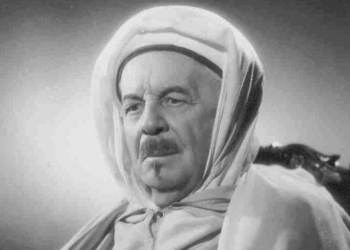By MORDECAI SPECKTOR
Growing up in St. Paul’s Highland Park Jewish community, Rabbi Bernard Solomon Raskas was always a part of my life. He was on the bima for my Bar Mitzva at Temple of Aaron Synagogue. As a teenager I attended his lectures on Jewish figures and topics, and came away inspired by his erudition.
Remembrance
In recent years, I have had the privilege of publishing Rabbi Raskas’ articles in the Jewish World, marvelous pieces that imparted his rabbinic insights on various events in our world, as well as articles about his travels, always with his wife Laeh, in Israel and to Jewish communities around the globe.
I wrote a remembrance of Laeh Raskas in 2007; and now, sadly, I have to find words to remember my friend Bernie, who died June 12 at Sholom Home East in St. Paul. He was 86.
A renowned rabbi in Minnesota and nationally, Rabbi Raskas was the son of Isaac and Rivka Raskas, who emigrated from Kovno, Lithuania, to St. Louis, Mo., in the late 19th century. Raskas Dairy, the family business, developed a sour cream labeled “Smetina,” which became one of the most important products of the kosher food business. In his eulogy for Rabbi Raskas, before a packed Temple of Aaron sanctuary June 14, Rabbi Barry Cytron mentioned that the lid of the Smetina containers featured a photo of a five-year-old child enjoying the product; it was a photo of “Babe” Raskas, who went from marketing his family’s product to becoming a “star” of the rabbinate.
Rabbi Bernard S. Raskas (Photo: Mordecai Specktor)
Raskas, serving Temple of Aaron from 1951 to 1989, was a “religious and community leader, and impresario par excellence, in both city and state; renowned champion of Jewish and secular causes; for nearly four decades the dynamic force of this singular congregation with which his very being was synonymous; and an individual who would display, in every venue — communal or congregational, on the pages of a newspaper or in a debate — his wide-ranging mind, one that was passionate, probing, and ever so cheerfully nonconformist,” said Cytron, who continued, “That is to say, Bernie was respectful of, and honored all he received, yet was determined to put it to the test, ready to push against the customary restraints; one who revered the Jewish tradition, but who was also determined to adapt and reshape it, to help mold an eager community in the changing times of mid- and late-20th century America.”
Regarding the Temple of Aaron, Rabbi Raskas and Laeh were integral to the construction and design of the handsome synagogue building on Mississippi River Boulevard. As Rabbi Cytron mentioned in his eulogy, they worked with architect Percival Goodman in designing the sanctuary, which features William Saltzman’s dramatic stained-glass windows and Helen Frankenthaler’s beautiful parochet, ark covering. The innovative rabbi also created special liturgies for the High Holidays and Passover, which featured artistic cover artwork and a mixture of traditional and contemporary poetry. As Rabbi Cytron pointed out, all of these efforts reflected the Raskases’ devotion to hiddur mitzva, enhancing the commandments through aesthetic refinement.
Rabbi Raskas wrote numerous books about Judaism and other topics; his trilogy, Heart of Wisdom, is the best known. Lerner published a collection of his essays in 2001 titled Seasons of the Mind — a blurb on the cover flap by Vice President Walter Mondale reads, “He is the Jewish Garrison Keillor.”
A staunch DFL partisan, Rabbi Raskas was especially fond of the late Sen. Paul Wellstone. During a telephone conversation after Wellstone’s untimely death in an airplane crash shortly before the 2002 elections, Raskas told me: “Somebody called him a mensch (a kind and generous person). He was more than a mensch. He stood for what the prophets stood for. He spoke the truth from the prophets, and he moved me very deeply as a rabbi.”
At the funeral, Rabbi Alan Shavit-Lonstein, who now serves in the Temple of Aaron pulpit, noted that Rabbi Raskas’ influence extended “much further” than the congregation in St. Paul, as he “pushed the social and political agenda of this community and of this country, to include more people as equals under the law on the bima. His advocacy for civil rights, for the equality of women in Jewish life, and for building up the relationship between Jews and Christians serves as a proud legacy for him and for this community.”
In 2006, as part of Temple of Aaron’s Jubilee celebration of 50 years in Highland Park, the portion of Hartford Avenue that runs by the synagogue was co-named Raskas Road. He also was given the title “Rabbi Laureate” by the congregation, in recognition of his 50-year association with the shul.
Following his retirement from the Temple of Aaron, Raskas taught religious studies at Macalester College in St. Paul for 16 years. He said that he thrived on his discussions with the students; in his humble way, the rabbi said that he learned as much from them as he taught them. Upon his retirement from Macalester, Raskas was feted with a luncheon, which was preceded by a lecture in his honor by Jonathan Sarna, a Brandeis University professor and eminent authority on American Judaism.
Rabbi Raskas’ oldest child, Hillel, was my classmate at Horace Mann Elementary School. In an e-mail this week, Hillel noted that his father was well known nationally: he served on the President’s Commission on the Holocaust; he was admired by members of the Rabbinical Assembly, the umbrella group of Conservative rabbis.
However, honors and the perks of rabbinic authority did not matter that much to Bernie, according to his son.
“My father once wrote that what gets us into heaven is not what we do in public, but what we do in private, that no one else knows,” Hillel wrote. “Some years back, when my mother was still active, a friend of hers called, asking for a ride a few days later to the hospital for a procedure. My mother said yes. The morning of the appointment, my mother was sick with the flu and simply could not leave the house. She went to my father, who was sitting at his desk writing some article for publication and working the phone. At first, my father was prepared to say that he was too busy. But he did not. He set down his pen, got his coat, drove my mother’s friend to the hospital, held her hand and then bought her a tuna sandwich in the hospital coffee shop.
“My father told me that he realized that when it would be his turn to face his maker in front of the heavenly tribunal, he would not be asked whether he had written the great sermons (which he did) or whether he was a national player on the Jewish scene (which he was). Rather, the King of Kings would simply ask, ‘Baruch Sholomo, did you help take your wife’s friend to the hospital and hold her hand?’ My father knew his priorities. Sermons and national scenes were important, but holding a frightened person’s hand was the real entry point to heaven.”
I was amused when a woman commented, during an event held at Sholom Home East last year, that she didn’t like it that staff members at the nursing home referred to Rabbi Raskas as “Bernie.” She did not think it befitting his dignity.
However, Rabbi Raskas told me to call him “Bernie.” And we enjoyed a friendship that I never imagined would have occurred in 1963, when I was a nervous Bar Mitzva boy on the Temple of Aaron bima. I have an especially fond recollection of being invited for a Sunday dinner in 2003, at the Raskases’ apartment in the Kiryat Wolfson neighborhood of Jerusalem. Laeh prepared some delicious chicken breast sandwiches. We ate and we talked that day and into the evening — for four hours.
In addition to Hillel, Rabbi Raskas is survived by a daughter, Eve Kafitz, and son-in-law Steve Kafitz; a son, David, and partner, Milo Mortenson; grandchildren, Micah and Zach Kafitz, and Shoshana, Ezra and Gabriel Raskas; sisters-in-law, Fayga H. Gordon and Natalie Halpern Eichen; and many nieces and nephews.
Rabbi Raskas was buried beside his beloved wife Laeh at Mount of Olives Cemetery in Jerusalem.
The American Jewish World expresses its condolences to the Raskas family.


















